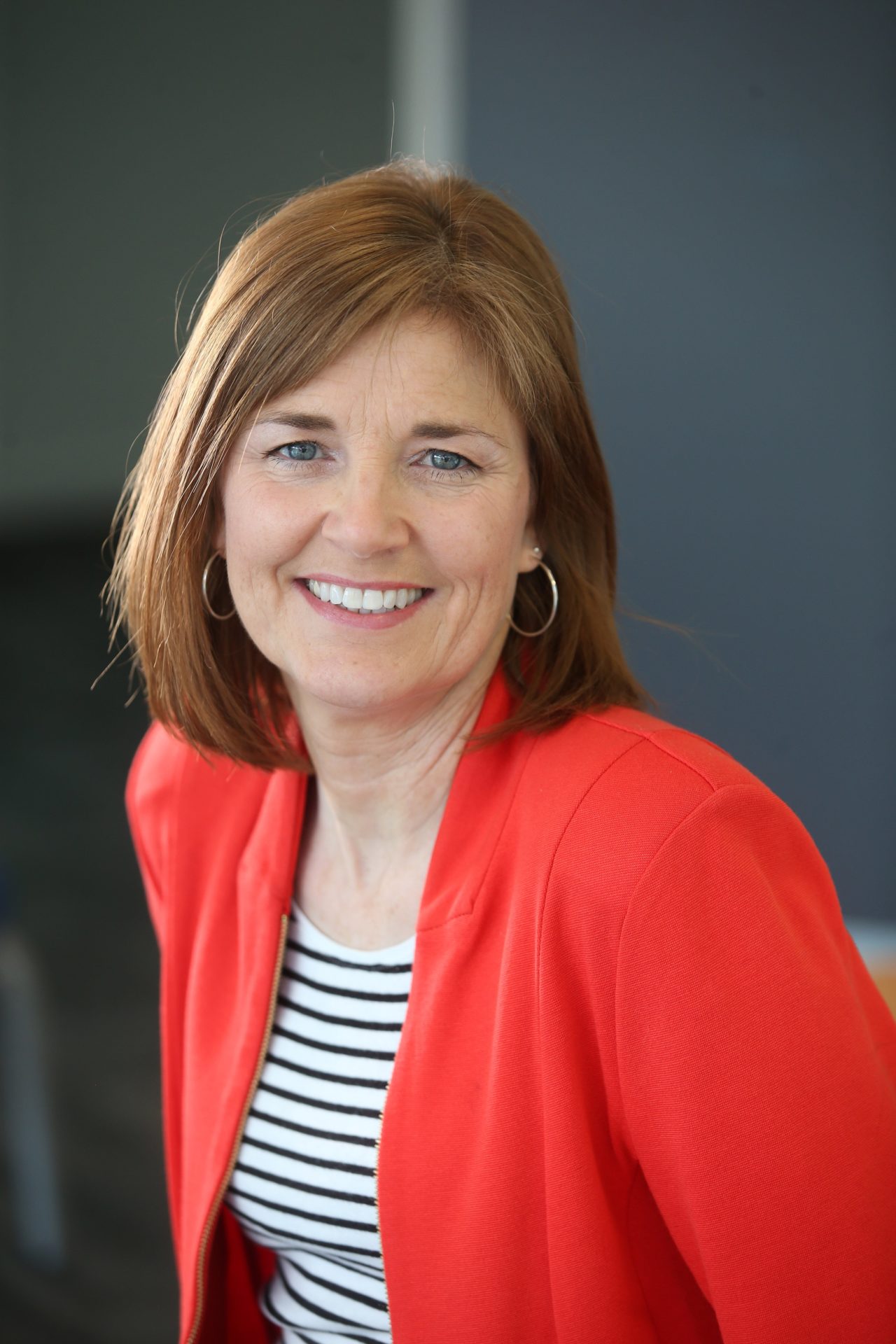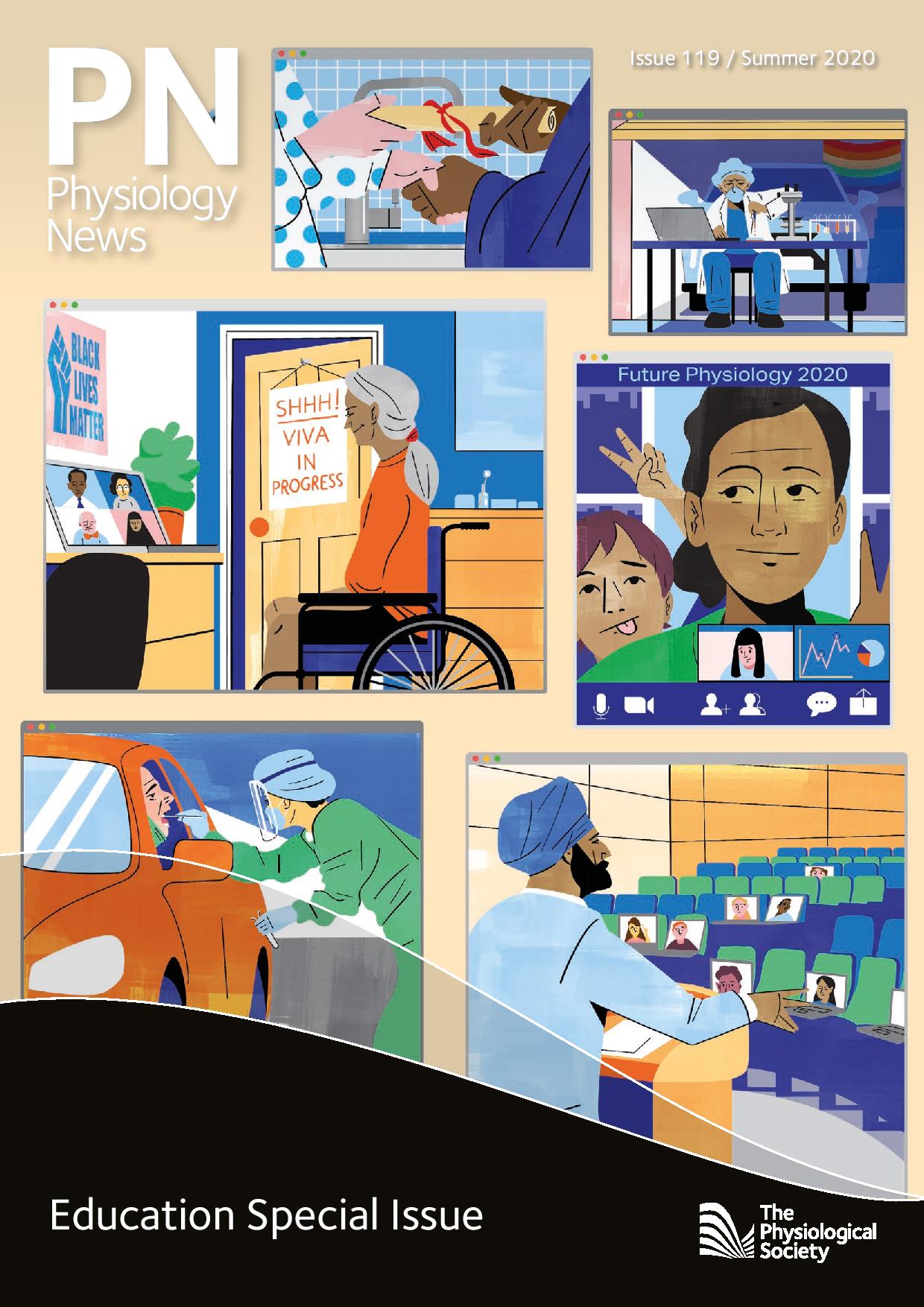
Physiology News Magazine
Editorial: Education in a time of COVID
News and Views
Editorial: Education in a time of COVID
News and Views
Sarah Hall, Cardiff University, UK and Chair of Education, Public Engagement and Policy Committee of The Physiological Society
Nick Freestone, Kingston University, UK
https://doi.org/10.36866/pn.119.5


The COVID-19 pandemic has highlighted the central role of education in society. Whether you are an academic, a teacher, a student or a parent facing home-schooling, the abrupt switch from on-campus education to the online realm has had a profound impact on our working and home lives. While the crisis may have revealed vulnerabilities in an education system that is often under-resourced and under-appreciated, it has also underlined the imagination, resourcefulness, dynamism and perseverance of educators and students alike as we have successfully adapted to the new “normal.”
Much of this issue of Physiology News focuses on the theme of adaptation. In a discipline that emphasises hands-on practical laboratory-based skills, Dave Lewis (p. 10) addresses the ways that physiology educators can provide relevant and authentic learning opportunities for their students within the current constraints of these strange times. He has provided colleagues with a suite of alternatives to traditional laboratory-based final year research projects that are achievable and imaginative. He also makes suggestions for remote alternatives to laboratory-based practicals (p. 13). Marc Demolder shares his view from Belgium (p. 32), recounting how practicals were shifted online to such an extent that his students did more “labs” this year than previously, although he cautions that the sudden shift to a different style of teaching may have adversely affected the quality of student work.
In the UK, the transition to online learning was achieved within two weeks of the imposition of Government lockdown, earlier this year. Laura Ginesi’s diary of events around lockdown (“Go home, stay there, and put your teaching online from Monday” was her management’s injunction) reveals how difficult, time-consuming but ultimately fulfilling she found that transition. Her experiences will strike a chord with many readers (p. 44).
Underpinning the ongoing efforts to adapt to the online context, while maintaining the student experience and managing academic workload, Maria Toledo-Rodriguez and Alison Mostyn provide us with a valuable overview (p. 22) of available online technologies to support teaching and learning. All aspects are covered here, from teaching to assessment, OSCE’s (objective structured clinical examinations) and interactive (anonymous) in-lecture polling. Importantly, they also consider student wellbeing and how to sustain a learning community in the electronic realm.
Equally useful are two thoughtful contributions from recipients of The Society’s Otto Hutter Teaching Prize. James Clark (p. 47) highlights four very recent research papers addressing alternative forms of delivery and engagement, including use of flipped modules and musical jingles, that are relevant to successful online activities. Julia Choate meanwhile (p. 48) takes a wider look at the literature and highlights three pedagogical studies that continue to inspire her approach to teaching, as well as her ongoing research activities. Writing from the student perspective, Róisín Ní Dhonnabháin (p. 46) reminds us, however, of differences in students’ technological literacy and how the move online may have exacerbated existing inequalities.
A study from The Physiological Society (p. 14) reminds us of the necessity of providing practical laboratory-based skills training for our students. Although physiology graduates find employment across the wide spectrum of careers, the largest single occupation is as biological scientists and biochemists. It is incumbent upon us as educators to give our students the essential scientific and transferable skills required for them to move into this world of work. How we facilitate this in the context of the pandemic understandably takes up a lot of this edition.
Harry Witchel and colleagues (p. 16) consider the efficacy of online versus classroom learning. While there are arguments for and against both, they issue a plea for more considered research to clarify matters and to inform future practice. A good place for readers to start would be participating in Harry’s education symposium at Physiology 2021 in Birmingham!
Such educational research clearly underpins successful teaching and learning activities. You might be surprised to learn that, last year, 7 of the 10 most accessed articles across the entire suite of APS titles last year were pedagogical studies published in Advances in Physiology Education (Barbara Goodman, p. 12). For instance, Khalil and Elkhider’s 2016 paper on learning theories and instructional design models was downloaded 81,467 times by June 2020! This is the kind of exposure that many of us can only dream of and shows the appetite for research that underpins best practice in our teaching and provision of learning.
Paradoxically, whilst pedagogical research is highly valued by our colleagues, Judy Harris’ latest survey (p. 26) found that promotion and progression for teaching-focused staff is less apparent now than in 2013, in comparison to research-focused colleagues. 60% of the respondents to Judy’s survey were unaware of any professorial appointments on teaching pathways in their institutions within the last 3 years. Even with the advent of the UK’s Teaching Excellence Framework, there is still work to be done in the sector to recognise consistent and achievable promotion criteria for teaching-focused staff and establish parity of esteem across academic career pathways.
It is clear that this global pandemic has highlighted the many roles of scientists in tackling the virus, and communicating and disseminating this knowledge effectively is more important now than ever. Commenting on the wider public engagement aspects of our academic lives, Paul Zehr recounts (p. 40) his use of the physiology of superheroes to explain our science to non-experts. He concludes that if knowledge is power then we, as physiologists, are superheroes! Now that’s a good point to whet your appetite on for this fascinating issue of Physiology News.
